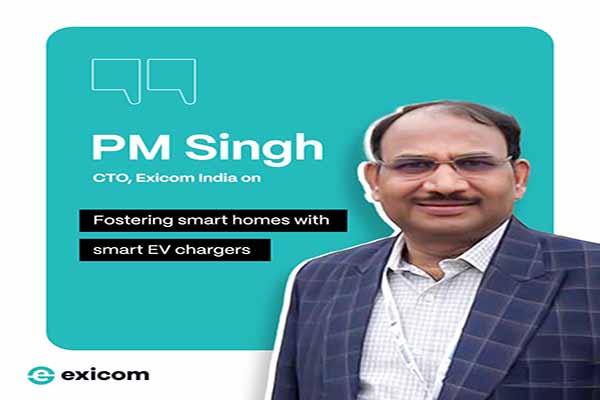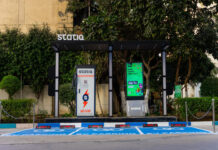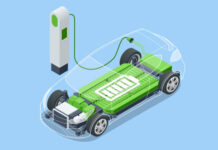India is witnessing an EV revolution. The futuristic, clean mobility solutions are gaining popularity, and are experiencing an increase in adoption as well. According to a report, EV sales in India soared to 139,000 units in October and 1.23 million in first 10 months of 2023, which is promising. A multitude of factors are working in favour of development of a robust Etiin the country. Firstly, electric vehicles are drivers of a sustainable future. They don’t emit carbon and reduce dependency on finite resources of energy including fossil fuels. Secondly, they are convenient, easy-to-maintain, cost efficient, and are equipped with the latest technology features for a superior experience. Moreover, government’s assistance to support EV adoption in the form of policies, tax benefits, and incentives are further acting as growth catalysts.
As EV demand increases, providing an easy and smooth EV owning experience becomes essential for potential EV buyers and owners to maintain the uptick. Since charging forms an integral part of EVs, creating a supportive ecosystem that enables seamless integration of electric vehicles into daily lives also becomes a necessity. As per a report, 80% of EV charging is done at home and thus, having a reliable and efficient EV charger at home which is cost-effective, fast, user-friendly, compatible, and easy-to-install makes EV ownership more practical and convenient. Moreover, a smart home EV charger can provide additional advantages in terms of enhanced control, higher efficiency and performance, energy and cost savings, and safety.
Home EV charging: Achieving cost efficiency and convenience through smart chargers
The smart home EV charging solutions bring huge financial gains for EV owners and contribute in reducing their electricity spends. For example, they allow users to benefit from Time-of-Use tariffs provided by utility companies by charging their EVs during reduced electricity demand when the rates are comparatively low. With this, the EV owners not just reduce their expenditure on electricity bills but also contribute to lowering strain on the grid for optimum energy usage and stability.
Earlier, traditional EV chargers used to take up a lot of space for installation at home and required regular care, monitoring and maintenance. But nowadays, smart home charging solutions are compact, stylish, easily installable which are not only accessible and convenient but further enhance aesthetics and home designs.
Moreover, the smart EV charging solutions are loaded with data analysis capabilities to analyse data generated during charging, and convert them into meaningful and actionable insights. By accessing these insights, EV owners can track their charging habits, energy expenditure and cost of electricity bills. This leads to optimizing electricity consumption, minimizing energy wastage, improving efficiency and maximizing savings.
Quick and efficient charging made user-centric
Smart home charging solutions for EVs are making the charging process extremely convenient for users. They are capable of keeping the EVs always on the go, thanks to cutting edge technologies. There are smart chargers which deliver quick and efficient charging and fully charge EVs within minutes. They further make it possible to charge EVs during short-breaks and eliminate the need to plan the day as per charging sessions. They come equipped with features such as remote control, monitoring and management in real-time along with regular notifications, reminders and alerts on charging status, battery and charger health.
In addition, user-friendly mobile apps and charging management software further ensure that users get enhanced control and ease of use by simplifying the charging process. Also, the users also get the option to share access with their family members or friends at home along with a locking feature for enhanced security over charger usage at home.
According to a report, the domestic demand for EV chargers is likely to grow at a CAGR of 65 per cent to reach the 3-million-unit mark by 2030. As potential EV buyers and owners switch to electric mobility, smart home EV charging solutions will be the key enablers in ensuring the transition is smooth and hassle-free. Also as charging technologies evolve, the smart EV chargers for home charging will make it convenient for users to always stay on the go, giving electric vehicles an edge over conventional ICEs for achieving a sustainable and better future.















